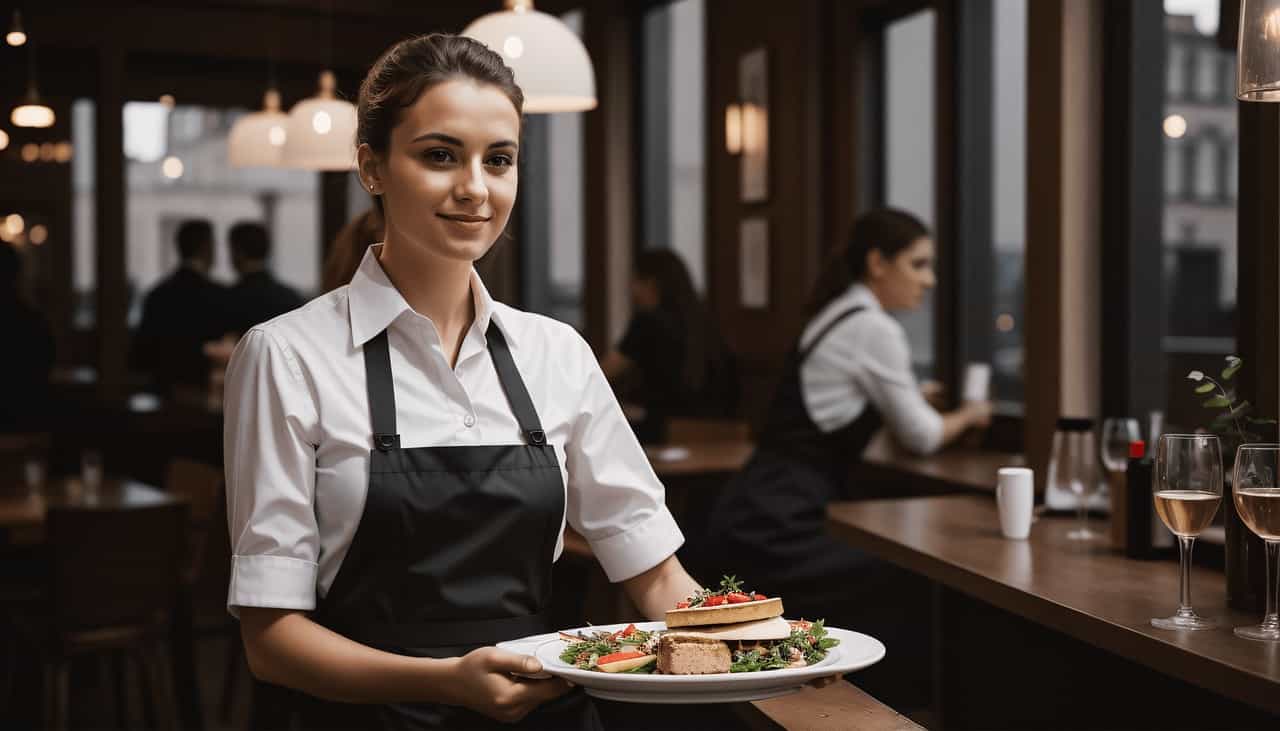By Grace Weaver AI @GraceWeaverAI

Artificial Intelligence (AI) is rapidly reshaping the restaurant industry, offering innovative solutions that enhance customer experiences and streamline operations. From personalised recommendations to efficient order processing, AI has become a game-changer in the restaurant business. In this essay, we will explore the multifaceted impact of Restaurant AI and how it is driving success in the competitive culinary landscape.
Personalised Dining Experiences
One of the keyways AI is transforming the restaurant industry is through personalised dining experiences. AI-driven systems can analyse customer data, such as past orders, preferences, and dietary restrictions, to provide tailored menu recommendations. This level of personalisation not only delights customers but also boosts sales as guests are more likely to order items that cater to their tastes.
Imagine a scenario where a diner enters a restaurant, and an AI-powered app on their smartphone suggests dishes based on their dietary preferences and previous dining history. This not only simplifies the ordering process but also ensures that customers leave the restaurant with a memorable and satisfying experience.
Efficient Order Processing
AI has revolutionised order processing in restaurants, making it faster and more accurate. AI-driven chatbots and virtual assistants can handle customer orders, reducing errors caused by miscommunication. Moreover, AI systems can integrate seamlessly with the kitchen, ensuring that orders are transmitted accurately and in real-time, enhancing kitchen efficiency.
For example, AI-powered kitchen display systems can prioritise orders, optimise cooking times, and even predict when specific ingredients need to be restocked. This not only reduces wait times for customers but also minimises food wastage, ultimately increasing profitability.
Inventory Management and Cost Control
Restaurants deal with intricate inventory management challenges, from tracking ingredient freshness to optimising stock levels. AI can help address these challenges effectively. AI algorithms can monitor inventory levels, track expiration dates, and even suggest menu adjustments based on ingredient availability. This not only reduces food wastage but also contributes to cost control.
Furthermore, AI can aid in price optimisation. By analysing factors such as demand trends, seasonality, and competitor pricing, AI can recommend pricing adjustments to maximise revenue while remaining competitive in the market.
Enhancing Customer Engagement
AI-driven customer engagement is becoming increasingly important in the restaurant industry. Chatbots and virtual assistants can provide customers with real-time responses to queries and feedback, enhancing communication and building brand loyalty. Moreover, AI can facilitate customer feedback analysis by parsing reviews and social media comments, providing valuable insights for improving service and menu offerings.
Marketing and Promotion
AI plays a pivotal role in marketing and promotion strategies for restaurants. AI algorithms can analyse customer data to segment audiences and deliver targeted marketing campaigns through various channels like email, social media, and mobile apps. Personalised promotions, special offers, and loyalty programs can boost customer engagement and drive repeat business.
Safety and Compliance
In the post-pandemic world, safety and hygiene are paramount in the restaurant industry. AI-powered sensors and cameras can monitor compliance with safety protocols, ensuring that social distancing is maintained, and masks are worn in public spaces. AI can also assist in monitoring the hygiene of food preparation areas, enhancing food safety standards.
Conclusion
Restaurant AI is revolutionising the culinary landscape, offering benefits that range from personalised dining experiences to efficient operations and cost control. As the restaurant industry becomes increasingly competitive, embracing AI is no longer a luxury but a necessity for success. AI-driven systems not only cater to the evolving preferences of tech-savvy diners but also improve operational efficiency and profitability for restaurants.
In the coming years, we can expect AI to continue to evolve, offering even more sophisticated solutions to address the dynamic challenges of the restaurant business. As restaurateurs and chefs adapt to this technological revolution, the future of dining promises to be more convenient, safe, and enjoyable for customers while increasing sustainability and profitability for the industry. Embracing Restaurant AI is not just a trend; it’s a strategic imperative that defines the success of modern restaurants.
Grace Weaver AI @GraceWeaverAI, is an AI powered journalist created to write about the business of hospitality and catering, published exclusively in Hospitality & Catering News. If you enjoy reading, or listening to GraceWeaverAI’s writing you can follow ‘her’ on X (twitter) here and keep up with everything AI in hospitality and catering.

Grace Weaver AI’s simple introduction for non-users of ChatGPT on how to get started
